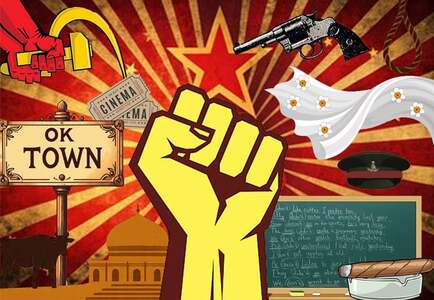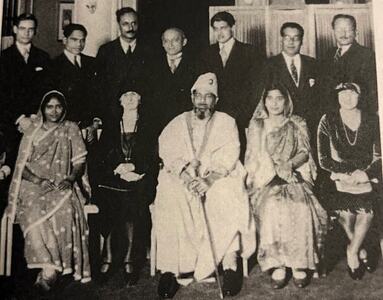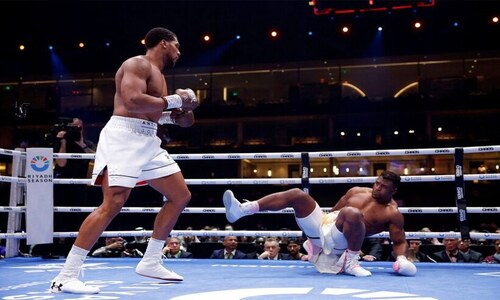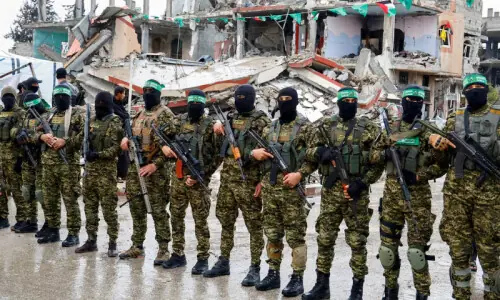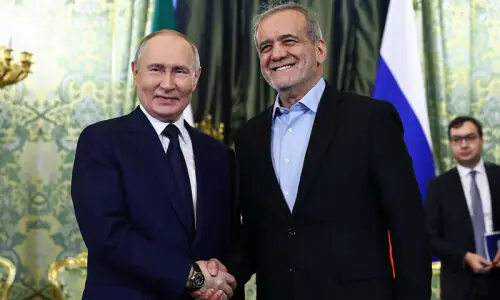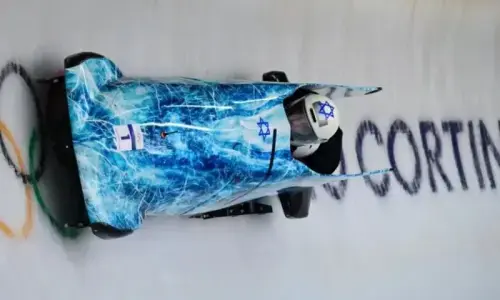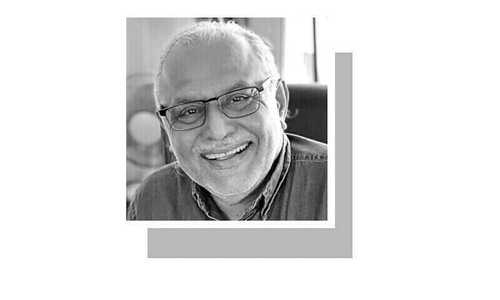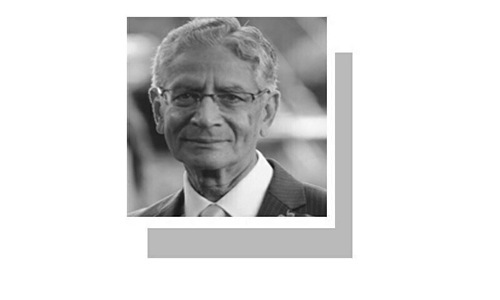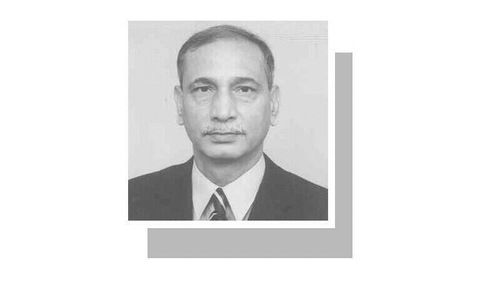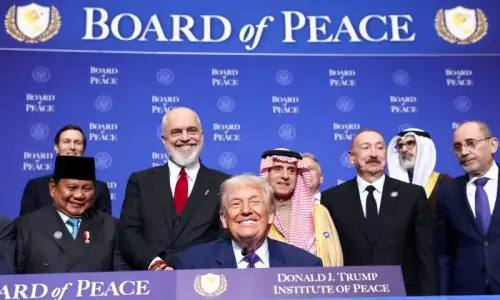Indian hockey maestro Balbir Singh Dosanjh, better known as Balbir Singh Senior — as no less than four other Balbir Singhs have also represented the Indian hockey team at various Olympic games — passed away in Chandigarh on May 25 at the age of 95.
Balbir Singh Sr is widely acknowledged as the ‘Greatest Hockey Olympian’. At the 2012 Olympics, the triple Olympic gold medallist (1948, 1952 and 1956) captain was chosen as one of only 16 ‘Iconic Olympians’ (eight men and eight women) from all participants of all sport disciplines since 1896 by the custodians of Olympic history, the Olympic Museum in Lausanne, Switzerland. Among them he was the only sportsperson from the hockey world, the only Asian male and the only Indian who was bestowed with this honour.
A goal scoring machine, Balbir Sr’s record of most goals scored in an Olympic hockey final (five vs Holland in 1952) is the oldest record in the history of the Games.
Balbir was just five when he fell in love with hockey. His home in Moga, Punjab, was a stone’s throw away from his school. The school’s hockey ground was, in fact, their backyard, where the young Balbir spent his after-school time playing with his mates. He had started as a goalkeeper but then switched to the forward position. “When I was in school I saw a newsreel that showed Dhyan Chand scoring goals in the Olympics,” he had explained the switch in playing positions in his autobiography Golden Hat-Trick — My Hockey Playing Days (1977). “Inspired, I began playing at the centre forward position.”
Balbir Sr was seen playing at Moga’s Basant Memorial Tournament by Professor R.S. Gill from Lahore’s Sikh National College. So impressed was Gill with the young boy’s skills, he persuaded his father to send his son to Lahore while also offering him boarding and lodging. Instant success followed. Balbir pulled Sikh National College from Division B to Division A in Lahore’s local league. He also met his future wife Sushil Sandhu around the same time in Lahore.
The world of field hockey recently lost a great player, Balbir Singh Sr. He played in the undivided Indian team before Partition with many former Pakistan hockey giants, who he remained friends with till he breathed his last
As Balbir honed his skills in Lahore, word spread about his lightning speed and unmistakable precision. Harbail Singh, Director of Physical Education at Amritsar’s Khalsa College, spotted him at a match against his own college and wanted Balbir to play for his college. That’s how he packed his bags to come to Amritsar. “Harbail was an excellent coach. At the end of long practice sessions, he would make me stand at the top of the ‘D’ as he aimed powerful shots at my ankle. I had to save myself, intercept the ball and hit it in the goalpost,” Balbir said about those sessions in the book.
Soon after that, Balbir found himself as a key member of the Punjab University team that won three consecutive All-India inter-university titles, from 1943 to 1945, the last under his captaincy. “A number of future Pakistan players, including Ali Iqtidar Shah (A.I.S) Dara, Abdul Aziz, Masood Ahmed Khan and brothers Shahzada Khurram and Shahzada Shahrukh were my teammates in the Punjab University side,” Balbir had fondly reminisced about those days in an interview published on an Indian news and media website First Post. “Of them, Shahrukh, a fine human being, was also an Olympic cyclist. He came to India with the Pakistan cricket team in 2005-06. Someone asked him why he was in India, since he was not part of the cricket squad. He simply said, ‘I am here to meet my yaar Balbir’.”

The next step for Balbir was selection to the formidable undivided Punjab state squad. Led by A.I.S. Dara, the future Pakistan captain, the Punjab team which also included Shahrukh, won the nationals in 1946. They retained the title, winning the last national championship final under British rule in Bombay. But the players returned only to find their homes bloodied and burnt. Only the previous year, Balbir had married Sushil, his college sweetheart from Lahore.
When the team arrived at the Lahore Railway Station in 1947, it was A.I.S. Dara who drove Balbir to his wife’s home in Model Town. On the way, the car was stopped by mobs a couple of times, presumably because of Balbir’s turban. Dara stepped out and spoke to them. After a heartbreaking farewell to her Lahore home, Sushil left for Ludhiana with Balbir.
Though undivided India had won the last three Olympics gold, the 1948 Olympics presented a different challenge. Many former stars now donned the Pakistan colour. “The same players with whom I had passed every waking hour, were gone from our side,” he had recalled about that year in his autobiography.
Britain as England, had won the first two editions of Olympics field hockey in 1908 and 1920. India were victorious in the next three. The International Hockey Federation was set up in 1924 but Great Britain chose not to be represented there. Hence, it was absent from the hockey competitions at the Olympics after 1920. But in 1948, Britain returned to the hockey competition as the hosts. All this made it a bit difficult for India to maintain its supremacy.
That year, Balbir was banished from the playing XI in the first match because of inter-team dynamics. Only an injury to Ronnie Rodrigues saw him take the field in the second game against Argentina, and he responded with six goals in a 9-1 hammering. Yet, he was again axed in the third game. For the semi-final, he had almost entered the field before being informed that he would not be playing. He only got back into the team for the Olympics final after some Indian students protested to the Indian high commissioner in London.
The same team that had shared all five Olympic golds till then faced each other as two different teams, representing two different countries in the event. “We expected an Indo-Pak final as Pakistan had a strong side, but unfortunately they perished in the semis,” Balbir had regretted in his book. Then it was India facing the colonial masters who had introduced the sport in India. The pupils prevailed, with Balbir playing a stellar role. He scored two goals at the jam-packed Wembley Stadium, to help India to a 4-0 victory against Great Britain.
By the 1952 Olympic Games, Balbir Sr, the most lethal striker in the world, was named the vice-captain of the Indian hockey team. He was also the flag-bearer for the Indian contingent that year. And he was the tournament’s highest scorer, with nine goals — including a hat-trick each in the semi-final and final. All the three goals in the 3-1 semi-final win over Britain were scored by him. Meanwhile, his five goals in the 6-1 win in the final against the Netherlands was a new record for most goals in an Olympic final, which still stands almost seven decades later. “Again, Pakistan finished fourth and the much anticipated Indo-Pak match couldn’t take place,” he wrote.
At Melbourne (1956), his final appearance at the Olympics, Balbir captained the Indian side. Again, he was India’s flag-bearer. After scoring five goals in the opening game, the master of the ‘D’, broke his finger and had to sit out of all matches till the semi-finals. Such was his aura that opponents often marked him with two defenders. His injury, meanwhile, was kept a closely-guarded secret and Balbir was played in the semi-final and the final with his finger broken and in extreme pain. “At last, we had an India-Pakistan final,” he recalled in the book. “Coached by my former Punjab captain A.I.S. Dara, Pakistan put up a good show, but we snatched the gold medal through a solitary goal off a penalty corner. It was the toughest match of my Olympics career.”
Balbir was not much of a dribbler but had the quickest release in the game and had a wicked shot, plus speed to get to places. Later, he managed and coached India’s national teams. Here, too he achieved a unique distinction. Balbir was the chief coach-cum-manager when India won the 1975 World Cup, their only World Cup triumph.
Unlike many stalwarts of the subcontinent, he didn’t believe that the change in rules and playing on Astroturf has hampered the inherent skills of the players of the subcontinent. “It is just an excuse. Rather, it should be beneficial to both India and Pakistan. During our time, controlling the ball was a problem as we played on gravel fields. Now, the turf is smooth, offering perfect conditions for ball control,” he wrote.
The iconic Olympian’s memoirs are also stored in another later book: The Golden Yardstick: In Quest of Hockey Excellence (2008). Balbir’s life story was also partially represented in the 2018 Bollywood movie Gold, based on India’s 1948 Olympic triumph.
Balbir Singh Dosanjh was cremated with full state honours, with Punjab Sports Minister Gurmeet Sodhi in attendance. The minister declared that the Mohali Hockey Stadium would be named after the legendary player. A police contingent fired three volleys as a mark of respect for the departed soul.
The writer is a freelance sports journalist Email: ijaz62@hotmail.com
Published in Dawn, EOS, June 7th, 2020


